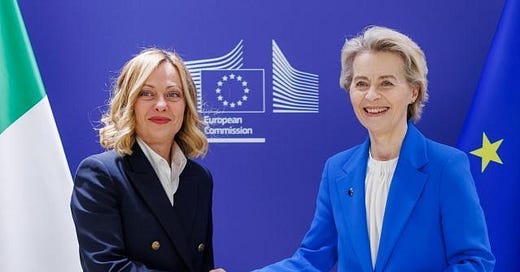Is Italy replacing France as the EU's Africa liaison?
I'm in Rome today, where President von der Leyen is joining Prime Minister Meloni in co-chairing a summit merging the EU's Africa policy with Italy's Mattei Plan.
“The Italians are a people of pioneers. They will make Africa fertile with their work, and they will civilise it with their culture.”
These were the words of Benito Mussolini in a speech in Bologna in 1936. Italy had come late to the game in grabbing “a slice of this magnificent African cake,” as Belgian King Leopold II put it at the 1884 Berlin Conference. But Italy had already, in 1911, been able to grab the slices that the other Western powers had previously deemed off limits (the Ottoman Empire’s remaining North African provinces), and that year Mussolini invaded and annexed the independent kingdom of Ethiopia, which had also been deemed off limits by the others. That invasion was the final act of European colonisation in Africa before decolonisaton began after the second world war.




